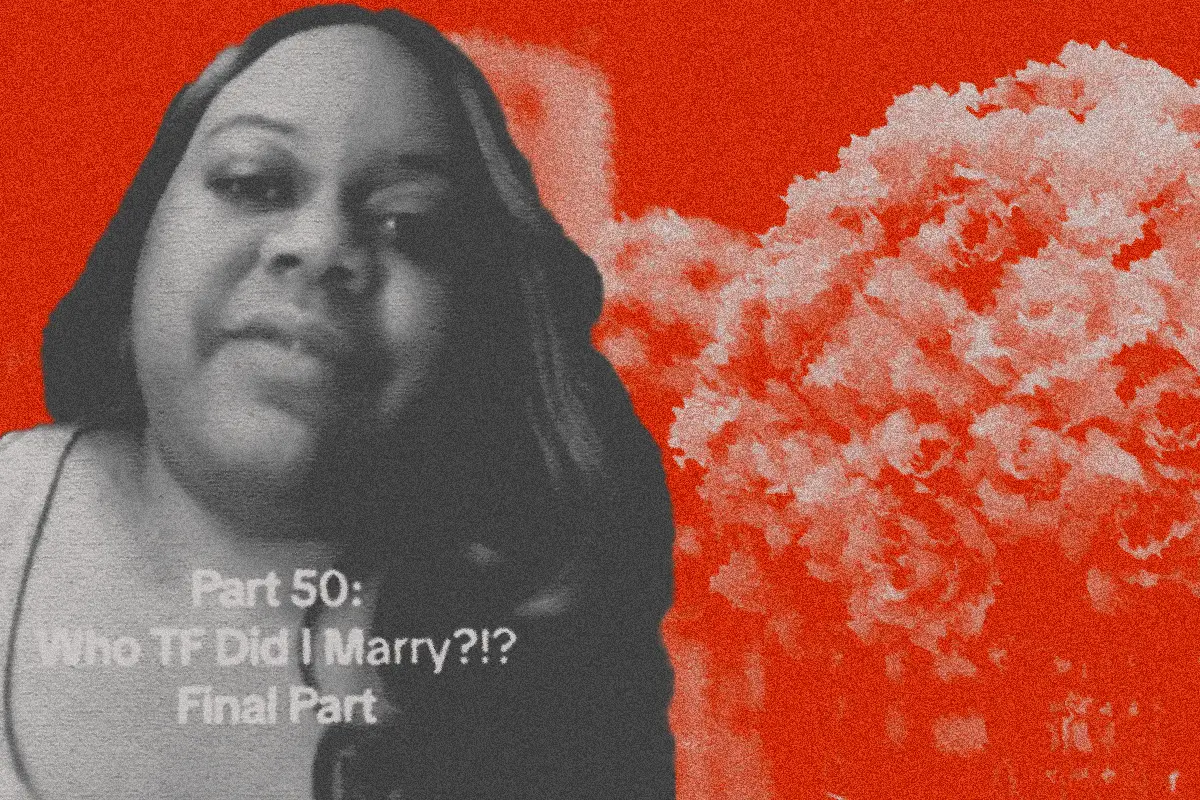From seemingly ordinary beginnings to an overnight sensation, Reesa Teesa’s life has taken a wild turn, leaving millions to question, ‘Who TF Did I Marry?’ The mystique surrounding Legion’s true identity explores the origins of the hashtag that has become synonymous with the newest true-crime podcast.
@reesamteesa Just a small snippet of the things my ex husband lied about. #pathologicalliar #divorcetok #covid #reesateesa ♬ original sound – ReesaTeesa
The hashtag #whotfdidimarry gained traction, and viewers became invested in the rollercoaster of emotions and events that defined Reesa’s journey. She takes viewers through her relationship’s highs and lows, beginning from the first date, to hastily moving in together, to their tumultuous marriage, and almost life-threatening divorce.
Widespread intrigue surrounding this phrase led viewers to question the rushed nature of her relationship, stirring up a storm of speculation and theories. The internet was abuzz with discussions, and media outlets began covering the phenomenon, trying to decipher the enigma that was Reesa’s ex-husband “Legion.”
From forged financial documents, bogus all-cash offers on homes and non-existent company cars, to fake phone calls with family members and visiting random cemetery plots, Reesa’s videos chronicle the extent of Legion’s elaborate lies and sparked a tremendous internet craze.
The revelation of her former husband Legion’s pathological lying and the subsequent unraveling of their time together added many unexpected layers to the 50-part TikTok saga.
In an attempt to provide context to her audience, Reesa Teesa later shared new information from her former brother-in-law that when he was younger, Legion had been diagnosed with bBipolar dDisorder and sSchizophrenia, but refused treatment. This clarification stirred up mixed emotions amongst viewers, as they grappled with the complexities of mental health, relationships, and personal boundaries.
@reesamteesa Who TF Did I Marry: Update 02/26/24 #reesateesa #fyp #fypシ #trending #whotfdidimarry ♬ original sound – ReesaTeesa
Pathological lying, bBipolar dDisorder and sSchizophrenia are distinct mental health conditions characterized by various symptoms, including those related to deceptive behavior and interpersonal relationships.
Bipolar disorder –, a mood disorder marked by extreme shifts in mood and energy levels –, can contribute to impulsivity and risky behaviors during manic episodes. This may manifest in erratic financial decisions, exaggerated self-importance, and deceitful actions. This is only exacerbated when coupled with a personality disorder. Pathological lying is associated with habitual and compulsive falsehoods, which may be intertwined with an inflated sense of self -worth when the affected person fully believes their own lies.
Compounded by Schizophrenia, a severe psychiatric disorder that may result in impaired thinking, delusions, and hallucinations, greatly impacts one’s perception of reality. These conditions can potentially lead to individuals engaging in deceptive acts, such as fabricating lengthy phone conversations or strained relationships with family members.
The American Psychiatric Association and the National Institute of Mental Health, explain the correlation between these mental health conditions and Legion’s behaviors. In Legion’s case, his non-disclosure and refusal of treatment subjected Ressa to a battleground for issues of trust, intimacy, and uncertainty. Exploring the complexities of such dynamics sheds light on the lasting effects of psychological abuse and raises profound ethical questions about the nature of trauma, forgiveness and responsibility in mental health.
The partner, bereft of an immediate and transparent communication channel, may struggle to comprehend the extent to which their mentally ill loved one can be held responsible for their actions. The victim is left to navigate complex moral terrain, torn between holding the mentally ill accountable for the destruction they caused and understanding the mitigating factors of their conditions.
The question arose: Does knowledge of Legion’s diagnosis offer an added layer of closure for Reesa Teesa, beyond receiving her divorce papers? Does it reopen old wounds or provide a new perspective on the traumatic experiences she endured?
Although indirect, Reesa acknowledged the challenges of being in a relationship with someone with such severely neglected untreated mental health issues. She emphasized the importance of understanding while making it clear that Legion’s diagnosis did not excuse any harmful behavior.
The public’s reaction to her explanation and the unfolding of events ranged from empathy for Reesa’s experiences to criticism of Legion’s actions. The story resonated with those who have been involved in unstable, emotionally abusive relationships. It became a reflection of societal attitudes, mental health, intimate relationships and the blurred boundaries between private and public life.

















